Alcohol has become an integral part of our social structure.
It is consumed in celebration, in sadness, and with dinner. It is often viewed as fuel for a fun night out. A social lubricant that can turn even the most awkward of humans into the life of a party in a mere matter of hours.
However, as you all know, excessive alcohol consumption can have deleterious effects on health.
But can you have some without any issue? I mean, is any alcohol bad for you?
Can any amount of alcohol be a part of a healthy lifestyle?
Over the last few years the message around alcohol has been constantly changing – so much so that now it can be very hard to separate the truth from misinformation.
One day you might be told that 1-2 drinks per day is fine. On another, you might be told that you shouldn’t drink any at all or your health will suffer significantly.
Hell, some people may even tell you that alcohol is good for you.
So, what should you believe?
Well, in 2018, the largest study exploring the relationship between alcohol consumption and health ever conducted was finally published. It included data from 195 countries, obtained over a whopping 26 year period (Griswold, 2018).
And what did they conclude?
That the level of consumption to minimise risk of death and health loss associated with alcohol is zero.
As in nothing at all.
Now this is not to say that certain alcohols cannot have a positive impact on specific areas of health, because they can.
However, this huge study concluded that even these positives are insignificant compared to the negatives.
So, if you were wondering how much alcohol is safe to drink daily, the ‘safest’ answer would be none.
What are the risk factors of drinking?
In general, we can break down alcohol consumption into one of four categories (Abel, 1998):
- Light consumption: approximately 1 drink per day
- Moderate consumption: approximately 2 drinks per day for men, and 1 drink per day for women
- Heavy consumption: approximately 3-4 drinks per day
- Abusive consumption: 5 or more drinks per day
And as I am sure you can imagine, this health risks associated with drinking increase significantly depending upon your level of consumption.
Alcohol and brain health
In an acute setting, many of us have experienced some of the effects that alcohol exhibits on the brain.
Things like a loss of coordination, a decline in problem solving capabilities, changes in mood, and irrational behaviour, all come to mind.
But what about in the long run?
First and foremost, chronic heavy alcohol consumption has been shown to lead to atrophy of the brain, declines in cognitive capabilities, and an increased risk of mental health disorders (including both depression and anxiety).
Additionally, regular moderate alcohol consumption has been shown to increase the risk of developing dementia and age-related declines in cognition in a big way (Topiwala, 2018).
In fact, it has been suggested that to optimise brain health, alcohol should be avoided completely.
Related Article: Lifestyle Recommendations To Prevent Cognitive Decline
Alcohol and heart health
Interestingly, when it comes to heart health, we do see a slightly different story (Goel, 2018).
Those who are light to moderate consumers of alcohol tend to have slightly better cardiovascular health than those who drink nothing at all. This suggests that the effects of alcohol (in small amounts) on the cardiovascular system may protect people from things like heart disease and stroke.
Conversely (and somewhat expectedly), regular excessive alcohol consumption has been linked to an increased risk of cardiovascular disease, stroke, heart attack, and high blood pressure.
Alcohol and liver health
Like brain health, to optimise liver health, abstaining from alcohol appears to be the best option (Szabo, 2010).
Heavy drinking is the primary risk factor for fatty liver disease and cirrhosis – two of the most debilitating liver related diseases on the planet.
Moreover, even small intakes of alcohol consumption have been linked to declines in liver health.
Alcohol and cancer
And finally, the link between alcohol consumption and cancer risk has been well known for decades (Bagnardi, 2001).
Regular alcohol consumption has been shown to increase the risk of developing a cancer of the oral cavity, pharynx, oesophagus, larynx, stomach, colon, rectum, liver, breast, and ovaries.
Importantly, the more you drink, the greater your risk.
Are there any benefits to drinking?
Earlier in the above section, I mentioned that low to moderate consumption of alcohol appears to have a protective effect on heart disease and risk of stroke.
It is also important to note that those who drink a small amount of alcohol daily tend to have lower blood sugar, better insulin sensitivity, and better blood cholesterol levels, than those who do not drink at all (Nova, 2012).
Drinking and stress
But what about alcohol and stress?
I mean, a lot of people will argue that alcohol helps reduce stress, which can have an overall positive impact on health – but is this really the case?
Well, kind of.
There is some evidence to suggest that consuming a small amount of alcohol can have a positive effect on psychological wellbeing and feelings of happiness – and this can help a very small percentage of the population ‘de-stress’ (Baum-Baicker, 1985).
However, on the other hand, alcohol intake has been directly linked to stress.
In this manner, people who are suffering from high levels of stress are more likely to drink more alcohol because they believe it helps reduce stress. But this is more likely to lead to alcohol dependence, and the many health issues associated.
Related Article: The Trick Stress Plays on Your Metabolism
Drinking and lifespan
And finally, I wanted to touch on one of the commonly discussed benefits associated with drinking a particular type of alcohol, being red wine.
Red wine is full to the brim will special antioxidants known as polyphenols (of which ‘resveratrol’ is arguably the most powerful). These compounds help fight off harmful free radicals throughout the body, protecting the brain and cardiovascular system from damage (Salehi, 2018).
As a result, the light consumption of red wine has been hypothesised to have a preventive effect against heart disease, and dementia – however, to date, there is no long term evidence suggesting that those who drink red wine are more likely to live longer than those who do not.
Related Article: Increase Strength, Increase Lifespan
Should athletes avoid alcohol completely?
While we have established that there is a limit of somewhat safe alcohol consumption (although none is the safest amount…), there is a particular group of individuals that this doesn’t really apply to.
Yep, you guessed it – athletes.
While the vast amount of exercise that athletes undertake is likely to mitigate many of the negative health effects associated with low to moderate alcohol consumption, we also need to consider its impact on other areas.
Research has shown that even small amounts of alcohol can impair physical performance for up to 72 hours after consumption. Moreover, consuming alcohol after exercise has also been shown to impair recovery.
With this in mind, at least during the season, athletes should abstain from alcohol completely.
Is being sober trending?
Something that has been quite interesting of late the perception that there is a millennial and Gen Z sober trend – but is this really the case? Are millennials drinking less?
And in general, it appears they are.
We have seen a steady decline in alcohol consumption among 16-24 year olds for the better part of 30 years. While there could be a myriad of reasons for this, most people hypothesize it is likely be due to the following:
- Increasing costs of alcohol
- Decline in the job market (and therefore less disposable income)
- Increased health awareness among the population
- Heightened health promotion actions from the government
All in all, considering the health implications associated with reduced alcohol consumption, this can only be a good thing in the long run.
Tips for replacing alcohol and drinking less
Finally, lets outlines some practical tips you can use to replace alcohol and drink less:
- Use alcohol alternatives: if you don’t want to drink in a social setting, it is very easy to opt for a ‘virgin’ alternative. This is a great way to enjoy a nice drink without people bugging you about not drinking.
- Set goals: if you are having a night out, set yourself a nightly limit and stick to it. This often results in you pacing yourself much better than you would normally as well, which is a great way to reduce the likelihood of a regretful night out.
- Measure your drinks: when drinking out, you often find that a lot of people ‘over-pour’ their drinks. Try and keep people honest and stick to proper serving sizes.
- Make up a ‘dry’ challenge: simply take an entire month (or more) off drinking and tell people you are undertaking a challenge. This is a great way to reduce your alcohol consumption, and more often than not, stop people from asking why you are not drinking.
- Set rules: finally, set some rues with yourself. This could be something as simple as ‘I will no longer drink on weeknights’, or ‘I will not drink this week’. Whatever it is, setting a rule is a great way to keep yourself honest.
As simple as each of these tips are, they offer an easy way to keep your alcohol intake down and your health high – so give them a go.
Related Article: Can you Afford Cheat Meals?
Take Home Message
Alcohol has been embedded in our culture for decades.
However, there is a growing body of evidence suggesting that limiting your intake as much as possible is hands-down the best option to go to optimise your health.
So, give the tips outlined in this article ago and get your intake down!
References
Griswold, Max G., et al. “Alcohol use and burden for 195 countries and territories, 1990–2016: a systematic analysis for the Global Burden of Disease Study 2016.” The Lancet 392.10152 (2018): 1015-1035.
Abel, Ernest L., Michael L. Kruger, and John Friedl. “How do physicians define “light,”“moderate,” and “heavy” drinking?.” Alcoholism: Clinical and Experimental Research 22.5 (1998): 979-984.
Topiwala, Anya, and Klaus Peter Ebmeier. “Effects of drinking on late-life brain and cognition.” Evidence-based mental health 21.1 (2018): 12-15.
Goel, Sunny, Abhishek Sharma, and Aakash Garg. “Effect of alcohol consumption on cardiovascular health.” Current cardiology reports 20.4 (2018): 19.
Szabo, Gyongyi, and Pranoti Mandrekar. “Focus on: alcohol and the liver.” Alcohol Research & Health 33.1-2 (2010): 87.
Bagnardi, Vincenzo, et al. “Alcohol consumption and the risk of cancer: a meta-analysis.” Alcohol Research & Health 25.4 (2001): 263.
Nova, Esther, et al. “Potential health benefits of moderate alcohol consumption: current perspectives in research.” Proceedings of the Nutrition Society 71.2 (2012): 307-315.
Baum-Baicker, Cynthia. “The psychological benefits of moderate alcohol consumption: a review of the literature.” Drug and Alcohol Dependence 15.4 (1985): 305-322.
Salehi, Bahare, et al. “Resveratrol: A double-edged sword in health benefits.” Biomedicines 6.3 (2018): 91.
You Might Like:
Can Any Amount of Alcohol Be Part of a Clean Lifestyle?
Alcohol has become an integral part of our social structure. It is consumed in celebration,...Matcha Tea and Exercise Benefits
There are literally thousands of supplements said to improve health and athletic performance – but,...Intermittent Energy Restriction: The Key to Sustainable Weight Loss
As someone who has worked in the health and fitness industry for a long time,...Can you Afford Cheat Meals?
John Barry Have you ever seen the Instagram feed of The Rock, Dwayne Johnson? I...Everything You Need to Know About Creatine
If someone came up and told you about an ‘amazing’ new supplement that can do...How Much Protein Should You Eat?
John Barry How much protein should a person eat? What foods are high in protein?...Does a high salt diet cause cognitive impairment?
Ever since the early seventies, salt has been demonized by the health community. And with...Metabolic Flexibility: The Key to Unlocking your Health
Over the last few decades, our health has declined at a rapid rate. Despite living...The Truth About Red Meat Consumption
Over the last few decades, we have seen dietary guidelines change drastically in an attempt...The Importance of Nutrition on Brain Health
What you put into your body is damn important. I mean, without providing your body...The Ingredient in Kale That May Promote Longevity
Kale has fast become one of the most talked-about foods in the health industry, with...Caffeine May Help or Hinder Athletic Performance
Most people have heard that caffeine enhances athletic performance, in fact, current guidelines recommend ingesting...Can Intermittent Fasting and Exercise Prevent Cancer?
It could easily be argued that we are living in the best time in human...How Long Does It Take To Reverse The Effects Of A Bad Diet?
Hunter Bennett You know that eating a good diet is important. But did you know...Does Dark Chocolate Aid In Muscle Recovery?
Hunter Bennett What do exercise enthusiasts, elite athletes, and weekend warriors all have in common?...Processed vs. Unprocessed Foods
Hunter Bennett Over the last few years, we have seen a bit of a change...Regaining Homeostasis With Diet & Exercise
Hunter Bennett In scientific literature, health is often defined as a state of complete physical,...Fasted Weight Training: Does It Help With Fat Loss?
Hunter Bennett The last few years have seen the health and fitness landscape evolve in...How Intermittent Fasting Affects Sleep
Hunter Bennett Intermittent fasting has fast become one of the most popular dietary trends of...Prolonged Fasting for Health & Longevity
Hunter Bennett Throughout history, there has been one thing sought above all others. Something that...Intermittent Fasting For Weight Management & Health
Hunter Bennett Every single week there seems to be some brand new diet on the...The Ketogenic Diet: How It Affects Athletic Performance
Hunter Bennett Every week a new way of eating hits the mainstream media. They are...Canadian Food Guide- A Dietary Guideline
Hunter Bennett The Canadian government made some rather large changes to their dietary guidelines. Like,...The Effects of Exercising On a High Fat Diet
Hunter Bennett When it comes to diet, there is an incredible amount of information out...Resistance Training & Protein Supplements: What You Need to Know
Dayton Kelly This article was adapted from a combination of speeches given at the European...FODMAPS and Exercise
Dayton Kelly FODMAPs: A culprit in exercise-induced gastrointestinal distress and an explanation for athlete adoption...Can Nitrate Rich Vegetables Boost Your Endurance?
Dayton Kelly This article was adapted from a combination of speeches given at the...Gluten-Free Diet and Exercise
Dayton Kelly This article was adapted from a combination of speeches given at the European...6 Vegan Athlete Meal Plan Ideas to Boost Performance
Jessica Gillespie-Friesen Animal products contain essential nutrients that contribute to proper body functioning but also...Relative Energy Deficiency: Nutrition For Endurance Athletes
Evan Stevens Speak with any endurance athlete and the topic of conversation almost always steers...What Are Probiotics and Prebiotics?
Alyssa Bialowas In response to the current cultural nutrition trend surrounding probiotics and supplements, pharmacies...3 Important Things Athletes Should Consider Before Going Vegan
Alyssa Bialowas The vegan diet is becoming increasingly popular among the general population and is...Do Ketogenic Diets Reduce Anaerobic Performance?
Evan Stevens Ketogenic diets have come to the forefront of popular health fads in the...Does the Keto Diet Affect High-Intensity Exercise Performance?
A Review by Alyssa Bialowas The ketogenic diet has been making waves due to its...The Best Way to Prevent Gut Rot During Your Workout
Alyssa Bialowas One of the worst things that can happen to you before you start...Everything You Need To Know About Protein Supplements
Evan Stevens The study of protein is a huge undertaking. It is one of the...Is There a Magic Bullet to Protein Consumption?
Evan Stevens In the last three parts we discovered that a lot of what we...Does Protein Impact Trained Athletes Differently?
Evan Stevens Previously at Forever Fit Science we looked at how science changes and why...Which type of Protein Provides the Best Workout Recovery?
Evan Stevens In our previous article, The Ever Changing Science of Protein, discussed how science...The Ever Changing Science of Protein
Evan Stevens You would think that by now we would have a pretty firm grasp...Why Milk is an Effective Recovery Drink for Female Athletes
Mojtaba Kaviani, Ph.D., CEP Cow milk contains protein, casein, carbohydrates, fat, vitamins and minerals, which...Anti-Inflammatory Foods in Your Diet (and What to Avoid)
Moji Kaviani, Ph.D., CEP Inflammation is part of the body’s natural defense system. Western medicine...Can Caffeine Improve Sprint Time In Elite Swimmers?
A Review by Alyssa Bialowas Caffeine is an ergogenic aid, meaning it’s a substance that...The Next Best Supplement For Exercise Performance
A Review by Alyssa Bialowas Korean Ginseng is a nutraceutical herbal supplement, that when ingested...DHA Supplementation Reduces Inflammation After Exercise
Alyssa Bialowas Introduction to DHA Supplementation Docosahexaenoic acid (DHA) is an omega-3 fatty acid. It...Citrus Flavonoid Supplementation May Improve Exercise Performance
Alyssa Bialowas The proper diet and supplementation regimen can improve exercise performance in athletes. Research...Impact Of Omega-3s Paired With Eccentric Exercise
Alyssa Bialowas Enhanced health immunity during the holiday season is crucial to preserve the capacity...Main Food Groups: Candy Canes, Cookies, Chocolate and Eggnog
Moji Kaviani, Ph.D., CEP If your main food groups are Candy Canes, Cookies, Chocolate and...Hydration and Performance, Part 3: MANAGING HYDRATION
Evan Stevens When we sweat we lose more than just water. That fine, salty coating...Hydration and Performance, Part 2: ELECTROLYTES
Evan Stevens Electrolytes and the Right Drink For You Welcome back to our continuing discussion...Hydration and Performance, Part 1: FLUIDS
Evan Stevens We previously discussed how masters level athletes’ nutritional needs are almost no different...Athletes May Be Suffering From Vitamin D Deficiency
Moji Kaviani, Ph.D., CEP If you are not getting out a few times per week...Dietary Strategies For Managing Rheumatoid Arthritis
Mojtaba Kaviani, Ph.D., CEP Rheumatoid arthritis (RA) is a chronic condition in which the body’s...Do Masters Athletes Need Specific Nutrition?
Evan Stevens Nutrition. It’s a topic that stirs debate at every mention. One day you...Hydration For Hockey Performance
Moji Kaviani, Ph.D., CEP Ice hockey is a team sport that requires players to have...Flaxseed Supplementation, Walking, and Hypertension
Hypertension is a chronic condition that can lead to cardiovascular disease or stroke, if not treated...How Will Turkey Dinner Impact Your HIIT Workout?
Moji Kaviani, Ph.D., CEP Who doesn’t like to get more health benefits while they are...How Fruits & Veggies Counteract Chronic Disease
Evan Stevens The CDC recently released an article detailing how we should start emphasizing the consumption...Protein Intake For Masters Athletes
Moji Kaviani, Ph.D., CEP There is robust evidence supporting that master athletes (40 years and over)...8 Ways to Augment The Oatmeal Breakfast
Amanda Carney Breakfast is considered the most important meal of the day, as it should...Is Milk Beneficial for Exercise Recovery?
Moji Kaviani, Ph.D., CEP The animal source proteins such as milk, containing 80% casein and 20%...6 Ways To Avoid Hunger That Leads To Overeating
Alyssa Bialowas Dieting and body image in sport can lead to the development of either...Effect Of Gluten-Free Diet On Endurance Performance
Moji Kaviani, Ph.D., CEP Non-celiac Athletes Approximately 70% of endurance athletes experience gastrointestinal distress during their...Exercise Your Gut (Microbiome)
Julia Basso Affiliation: New York University, Center for Neural Science As a neuroscientist who studies...Pump Up Your Performance With Beet Root Juice!
Dayton Kelly This article was adapted from a combination of speeches given at the European...Health Challenges and Cleanses – A Help or Hinder?
Gillian White – MSc, PhD (Candidate), University of Toronto Health Challenges and Cleanses – Helping...Post Exercise Meal Impact On Triglyceride & Cholesterol Levels
M. Kaviani Obesity is a leading global health problem and is associated with multiple chronic...Food vs Protein Supplements
Evan Stevens The final talk in this session was a breath of fresh air for...Precision Nutrition and You: Nutrigenomic Approaches To Disease And Health
Evan Stevens We have previously discussed the growing field of nutrigenomics here at Forever Fit...Fill Up On Omega-3s
Dayton Kelly This article was adapted from a combination of speeches given at the European...Stopping To Drink: Is It Worth The Time?
Dayton Kelly This article was adapted from a combination of speeches given at the European...Re-Thinking Gender Based Nutrition
Dayton Kelley Gender Based Nutrition This article was adapted from a combination of speeches given...The Truth About Carbo Loading
Evan Stevens Carbo Loading Carb loading, for those who haven’t been around sport for the...Protein Quality Dictates Recovery, Not Timing
Evan Stevens “Oh, I’m sore today.” “I feel like it’s getting harder to work out...Exercise Enjoyment May Affect Post-Workout Eating Habits
Catherine O’Brien While a healthy lifestyle is dependent upon various factors, it is widely accepted...Effects of Alcohol On Your Workout
Gillian White – MSc, PhD (C), University of Toronto, Department of Exercise Sciences Is a...Counting Calories May Prevent Overeating
Dayton Kelly As we all know, the food we eat has an enormous impact on...3 Tips To Minimize Everyday Chemicals
Adriane Cook B.S. Kinesiology, Michigan State University www.balancewithme.com Chemicals, toxins, and pollution, oh my! Do...Coffee: Fitness Friend or Foe?
Adriane Cook B.S. Kinesiology, Michigan State University www.balancewithme.com Nothing quite unites a country like its...Sugar – Is It Hurting Your Healthy Lifestyle?
Matt Kiszka Sometimes it seems like sugar is in everything we eat. The obvious culprits...How Much Protein Do Women Really Need?
Lauren Rubadeau How Much Protein Do Women Need Based on their Activity Level? With New...Drink, Be Merry…and Exercise!
Julia Basso – PhD Most of us engage in a drink or two (or three…)...8 Ways to Prevent Weight Gain During the Holidays
Alley Rubadeau 8 Ways to Prevent Weight Gain During the Holidays You made it through...Food for Fuel: Healthy Granola Bar Recipe
Forever Fit Science Master Swim Athletes and U.S. Air Force Lieutenants, The Holman Sisters, share...BHB Supplements and Energy
Evan Stevens BHB Supplements and Energy We’ve already heard about low CHO (low carbohydrate) diets...Fat, Carbs, Protein and Recovery. Is There A Silver Bullet?
Evan Stevens The first talk in this session was very similar to the talks that...Nutrition Takeaways: Gatorade Sport Science Institute
Evan Stevens The main theme of this session was protein supplementation before bed to improve...Gene-Based Nutrition: Can It Benefit You?
Evan Stevens Based on a talk by Lisa Cianfrini at Take Control of Your Health/Wellness...Exercise Nutrition Symposium
Evan Stevens This past Saturday, April 2nd, I had the wonderful opportunity to attend the...7 Delicious Options to Increase Your Omega-3s
Amanda Carney Whether you are an athlete, partake in regular exercise or just want to...5 Easy, Heart-Healthy Breakfast Ideas
Amanda Carney – Holistic Nutrition Coach A healthy heart equals a healthy body, and we want...Reward Yourself: Post-Workout Vanilla Blueberry Smoothie
Author: Amanda Carney As a health coach, I am constantly receiving questions about what to...Three Health Chia Seed Pudding Recipes For You and Your Family
By: Amanda Carney When you think of pudding, chances are you imagine a decadent sugar-laden...The Importance of Food: How Should I Eat?
Author: Evan Stevens, MSc in Nutritional Science In my previous article, titled “What Should I Eat...The post Can Any Amount of Alcohol Be Part of a Clean Lifestyle? appeared first on ForeverFitScience.
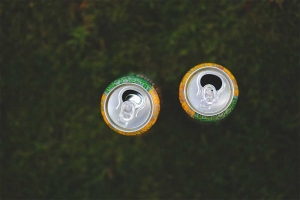


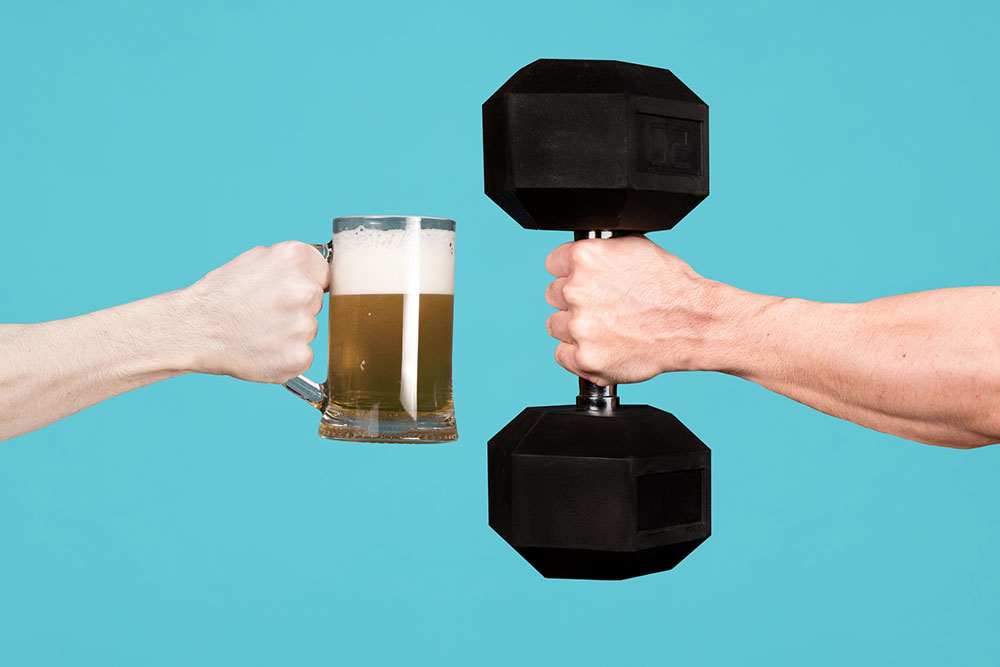
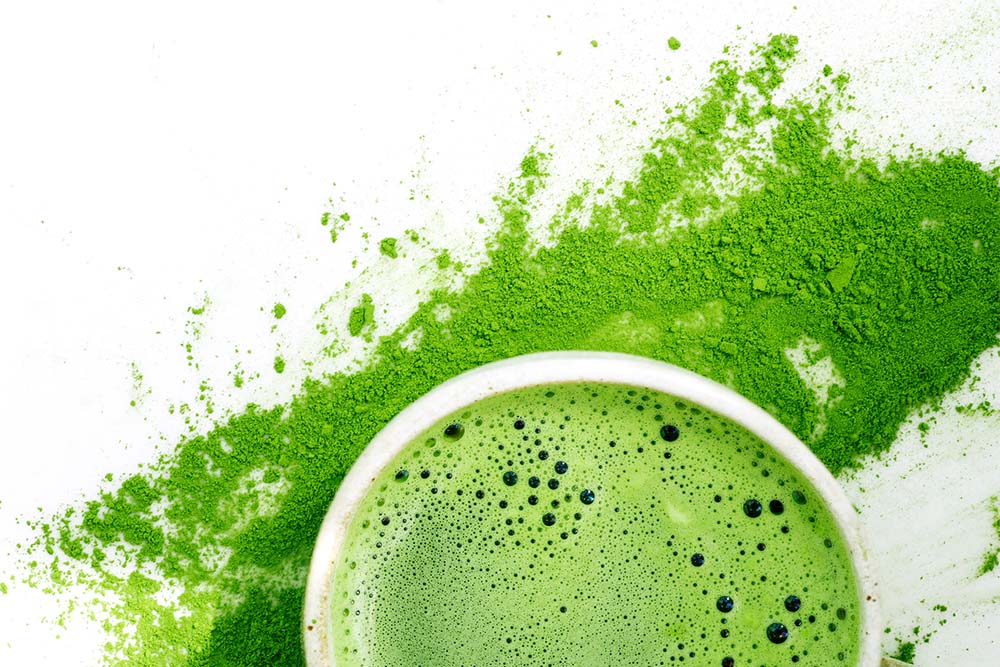












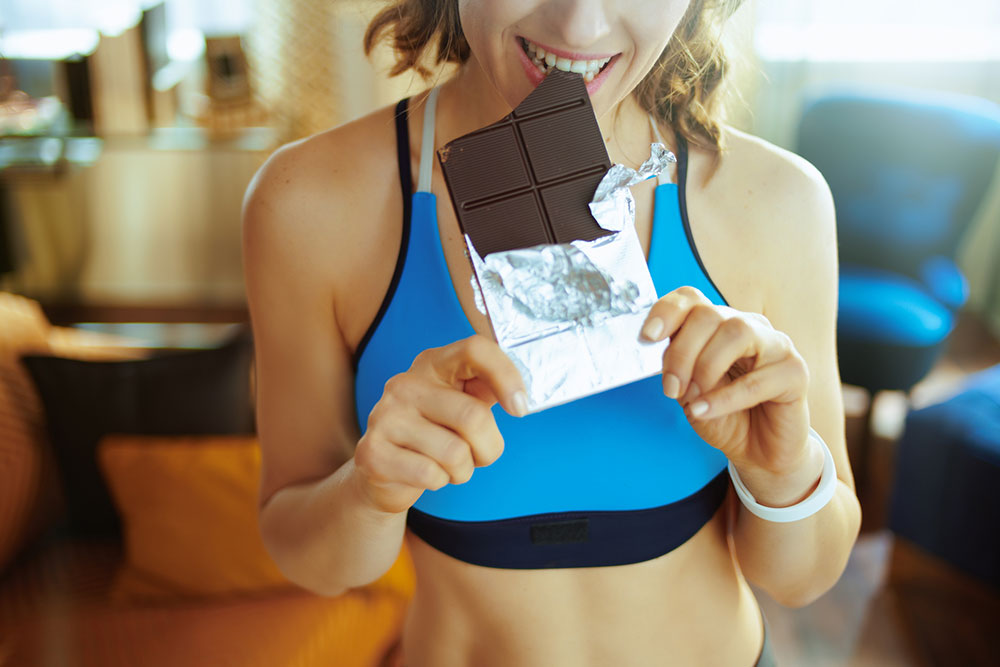





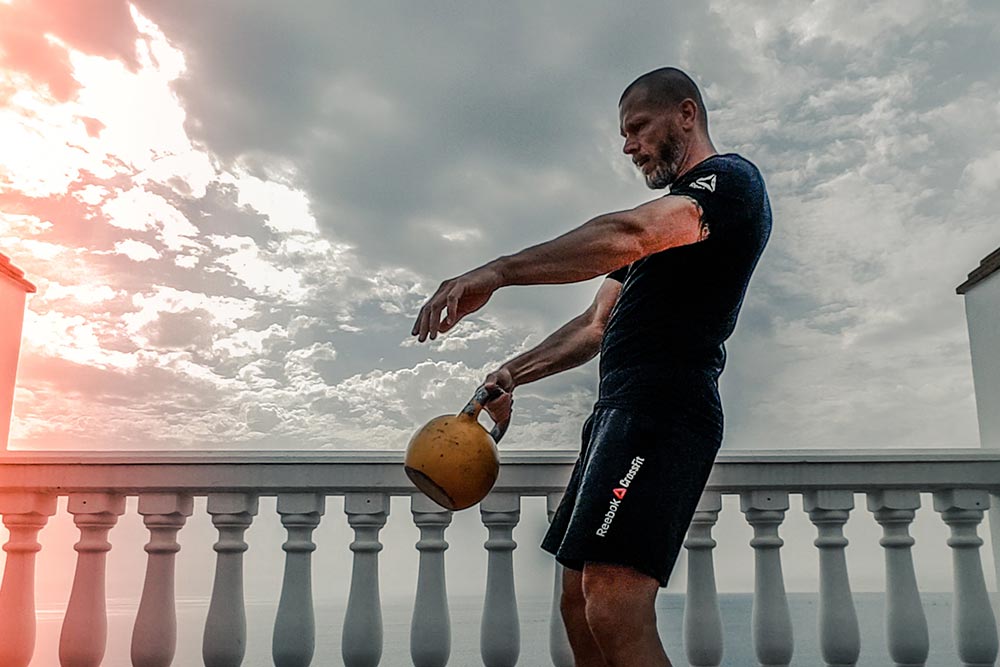





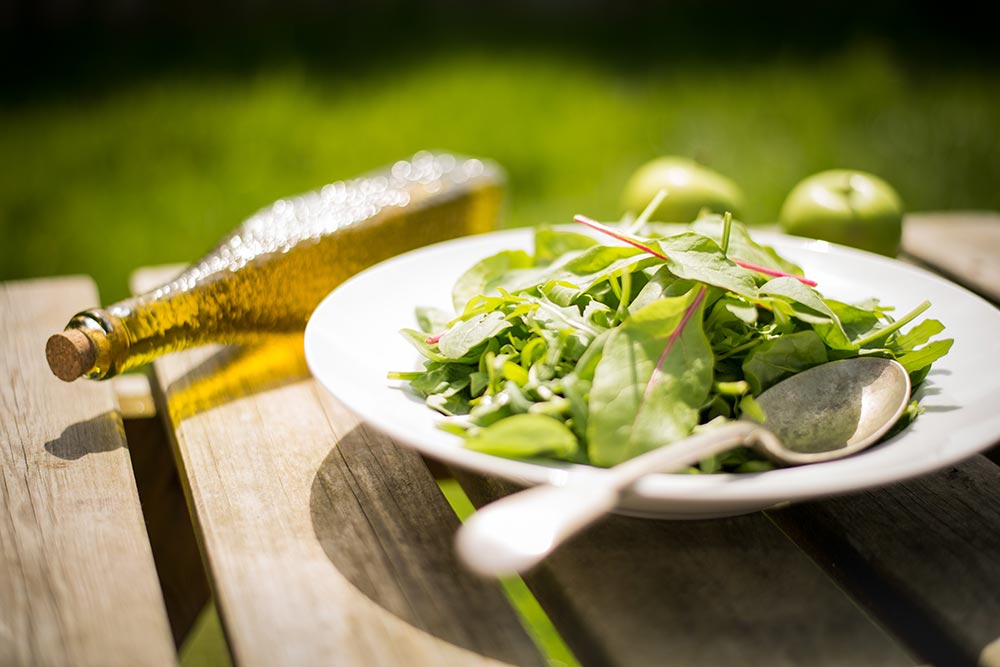



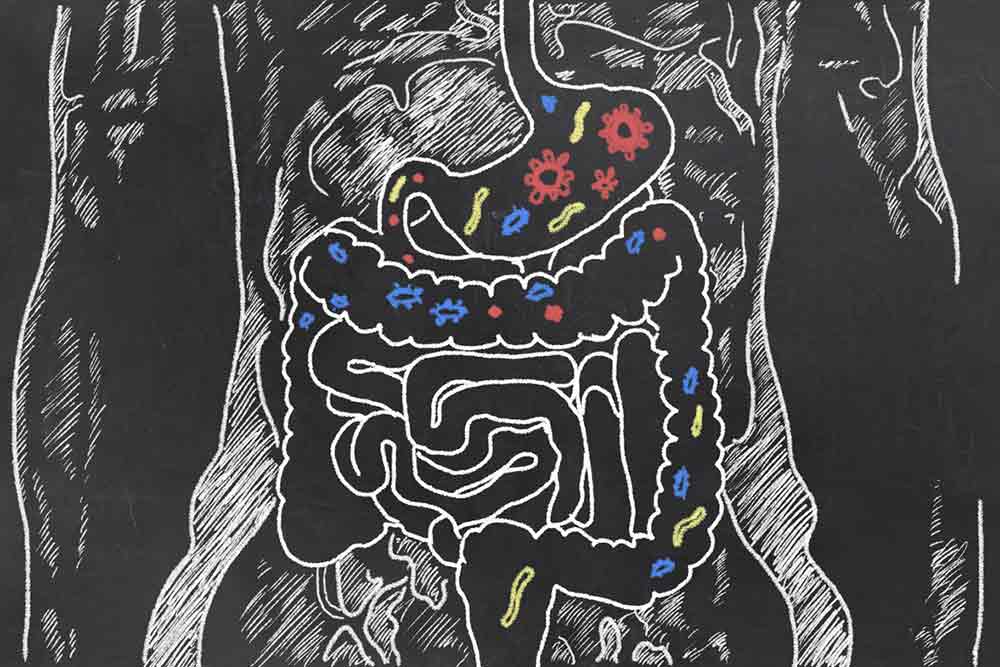





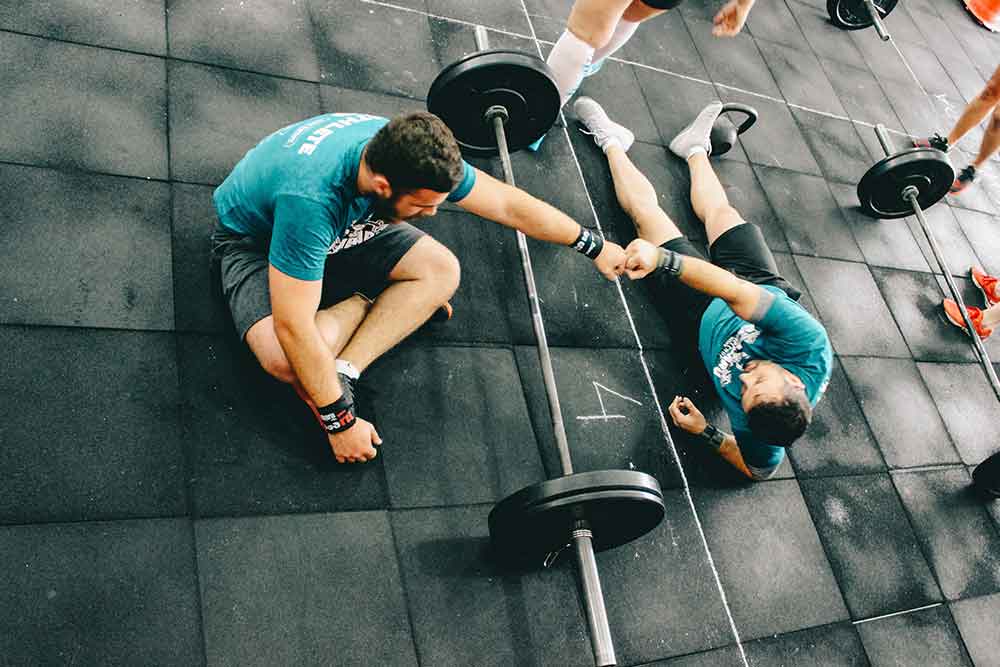



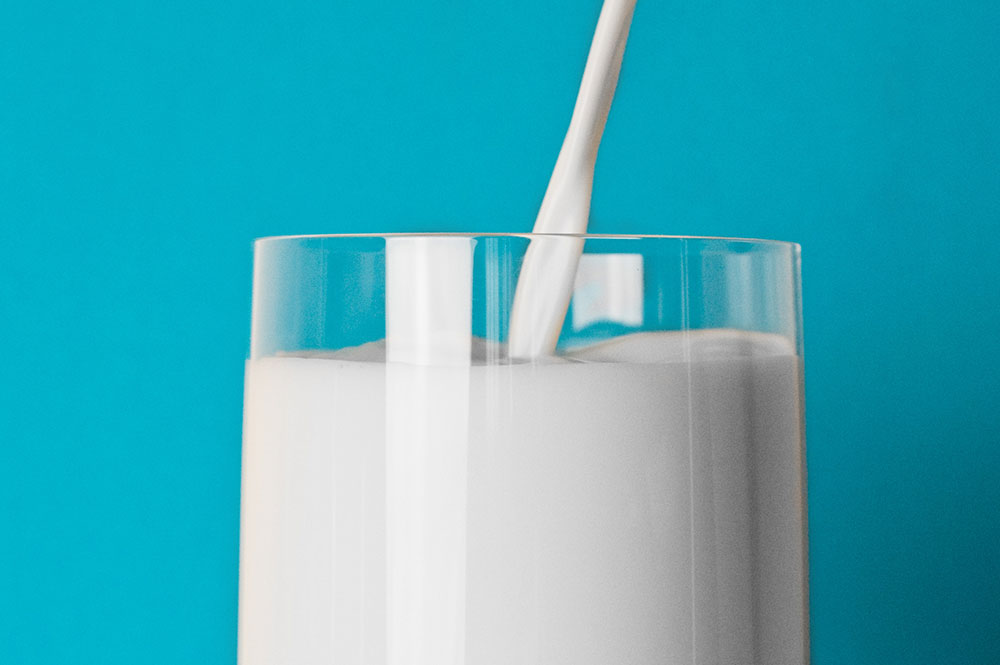







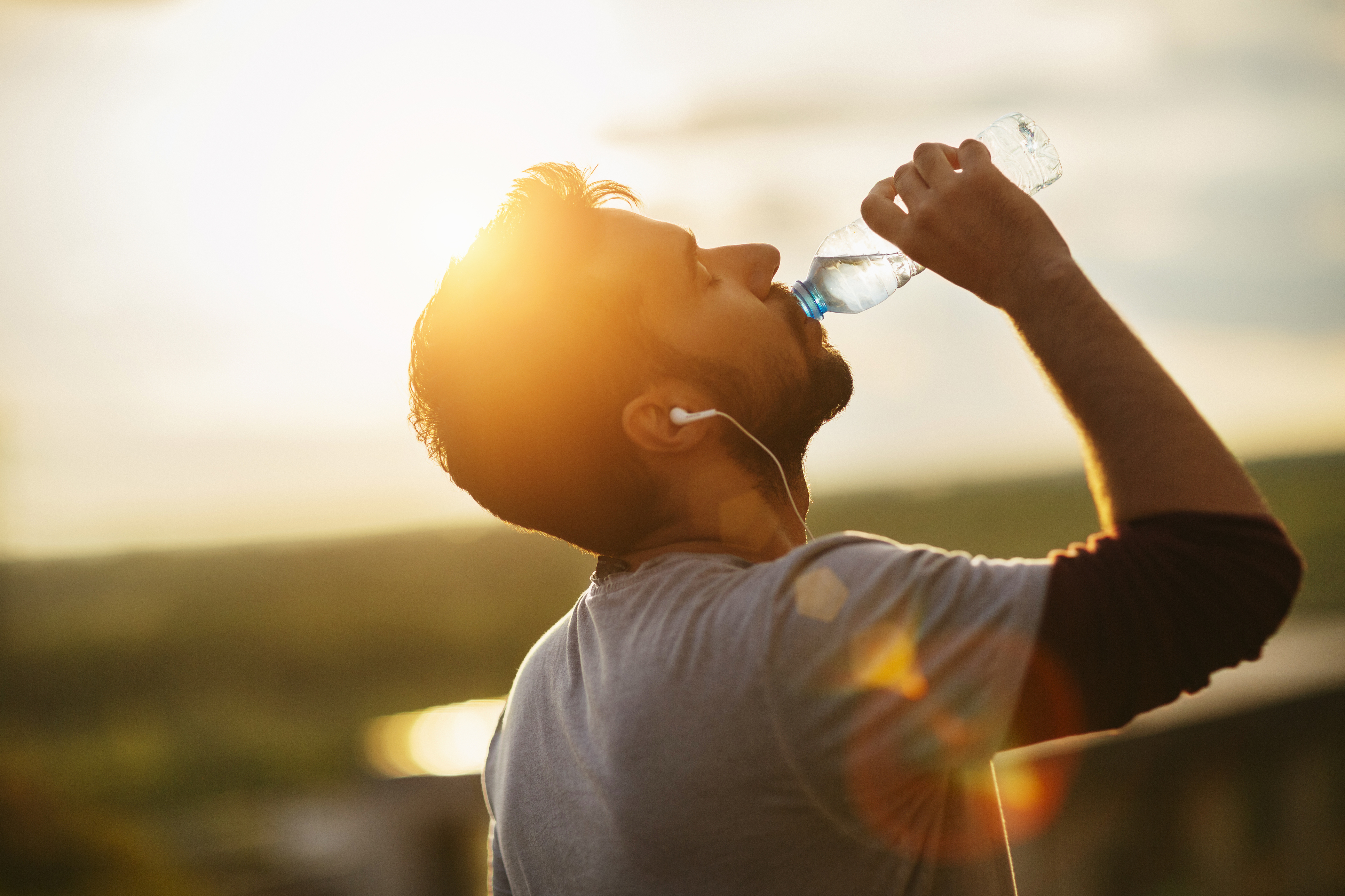
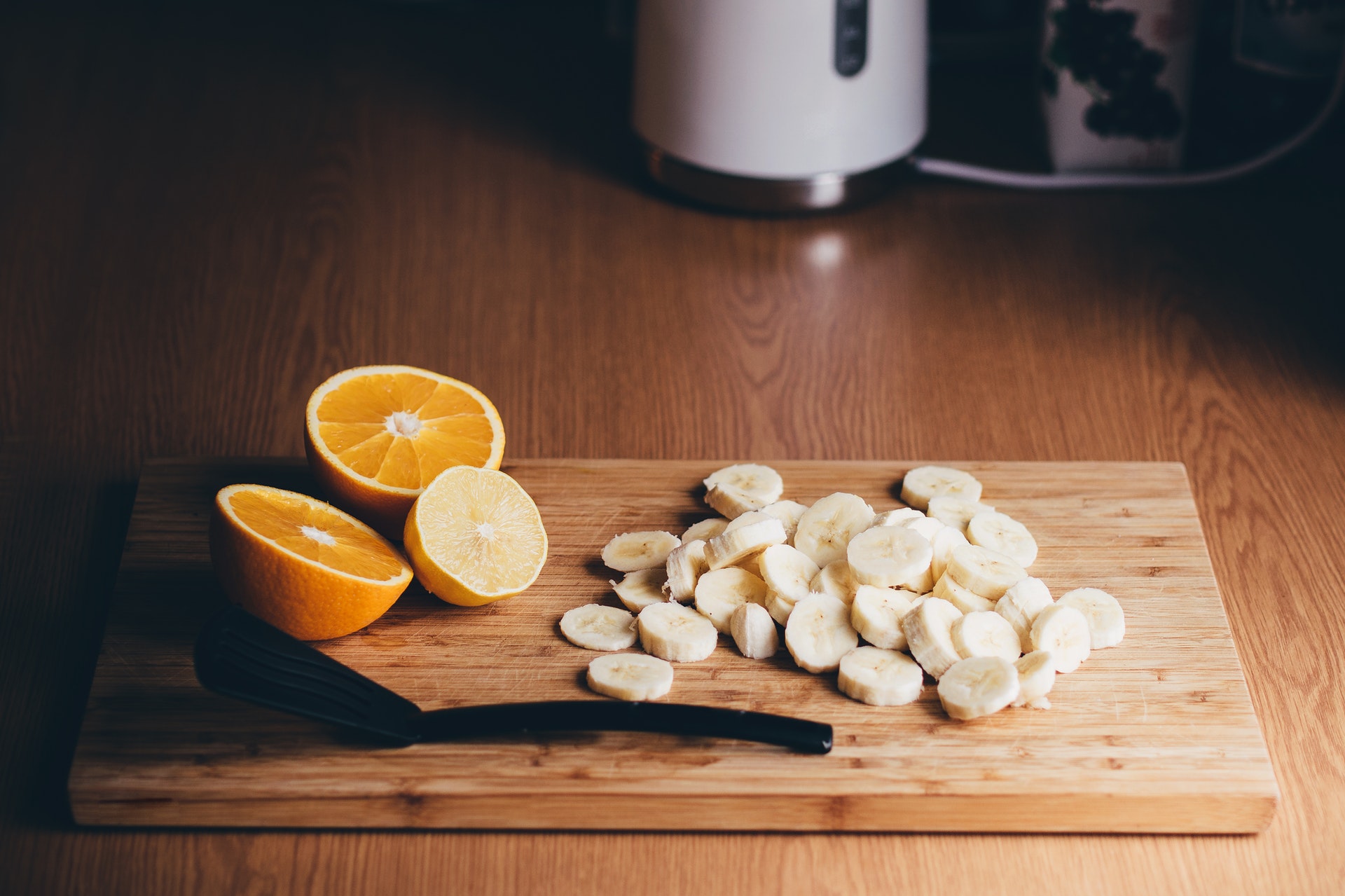





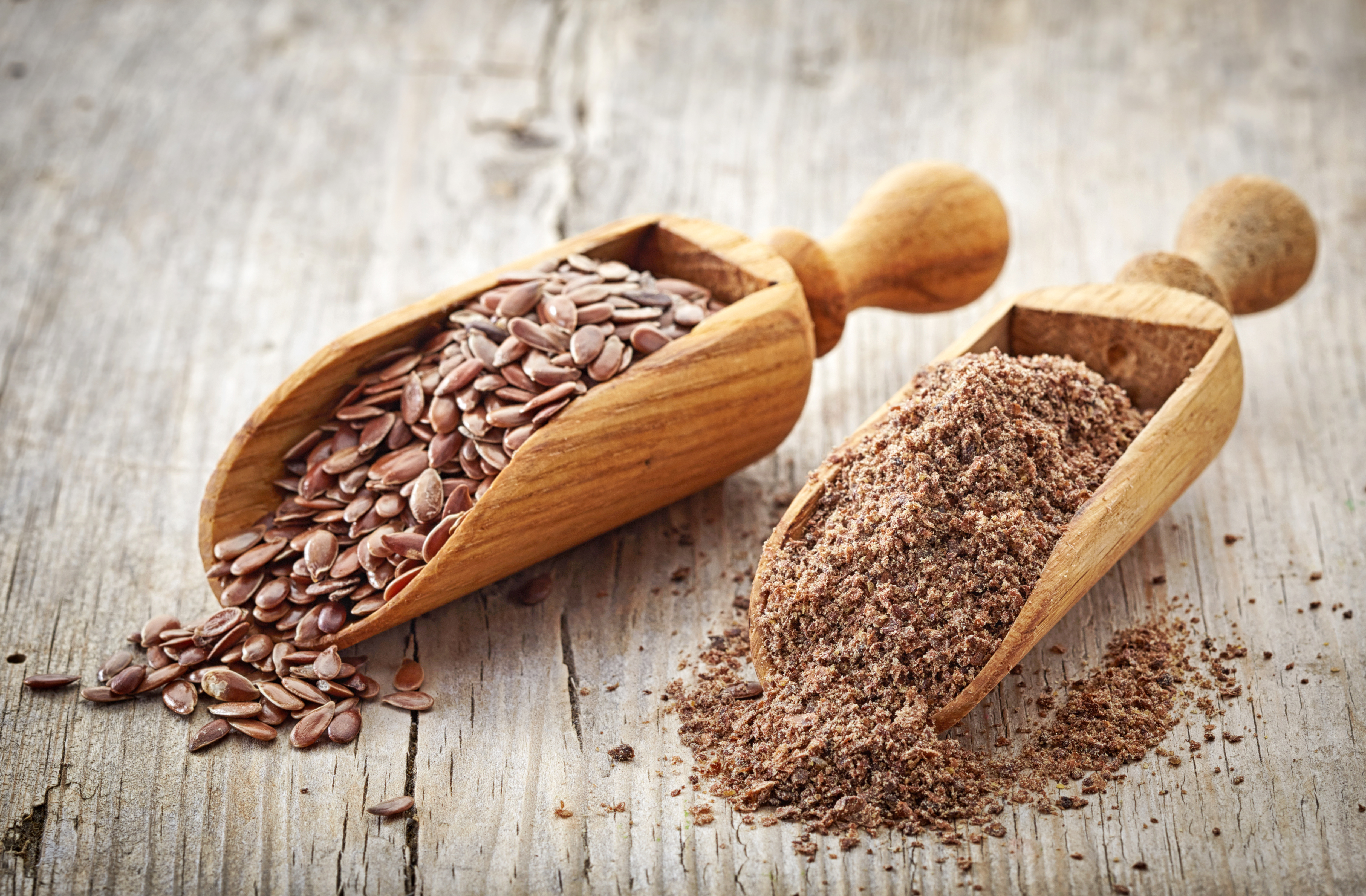







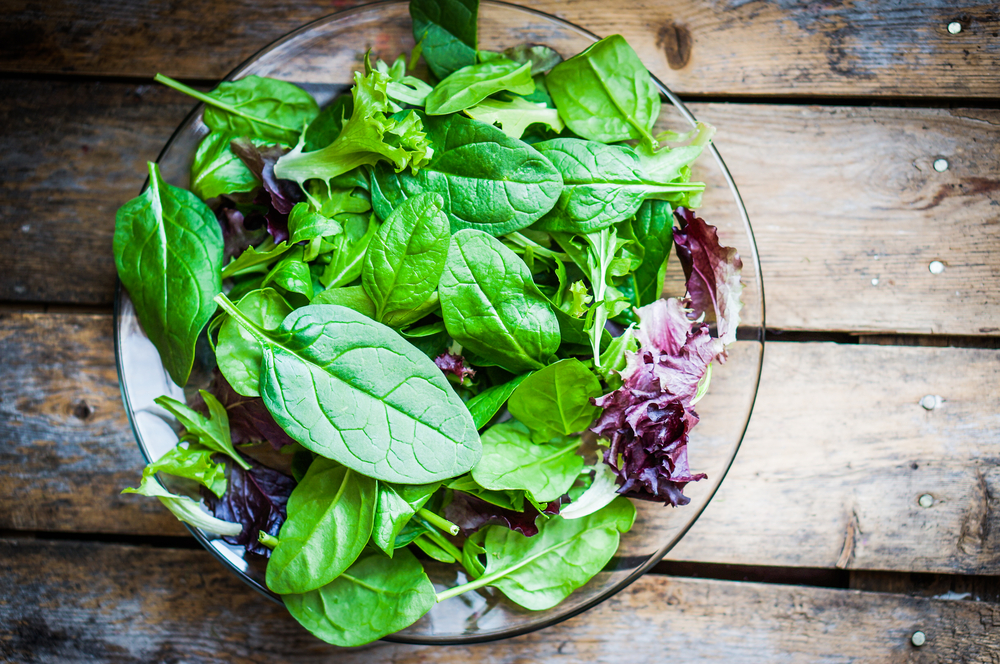



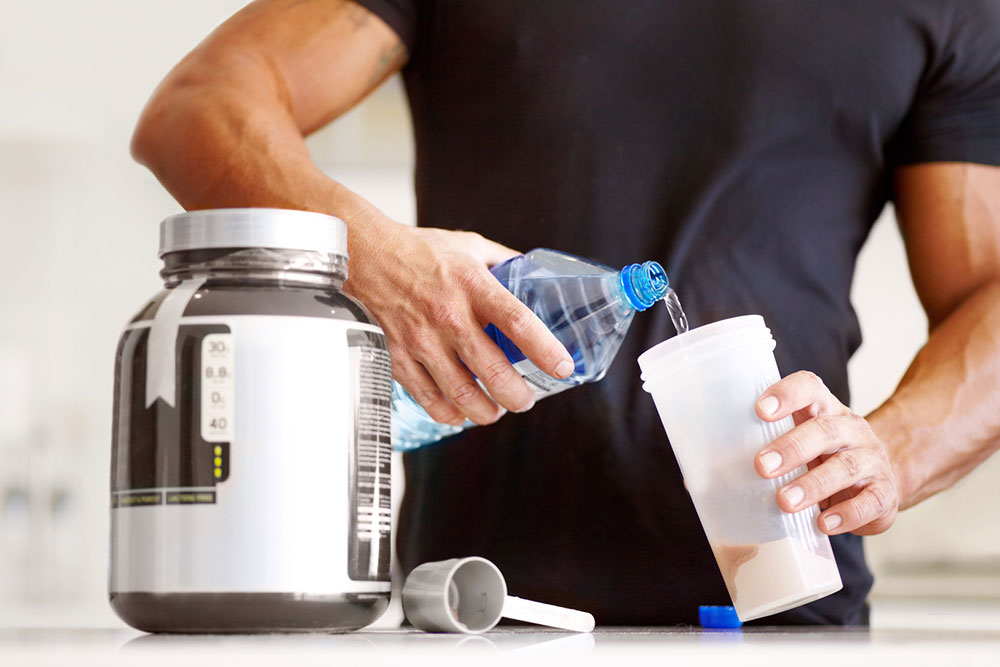





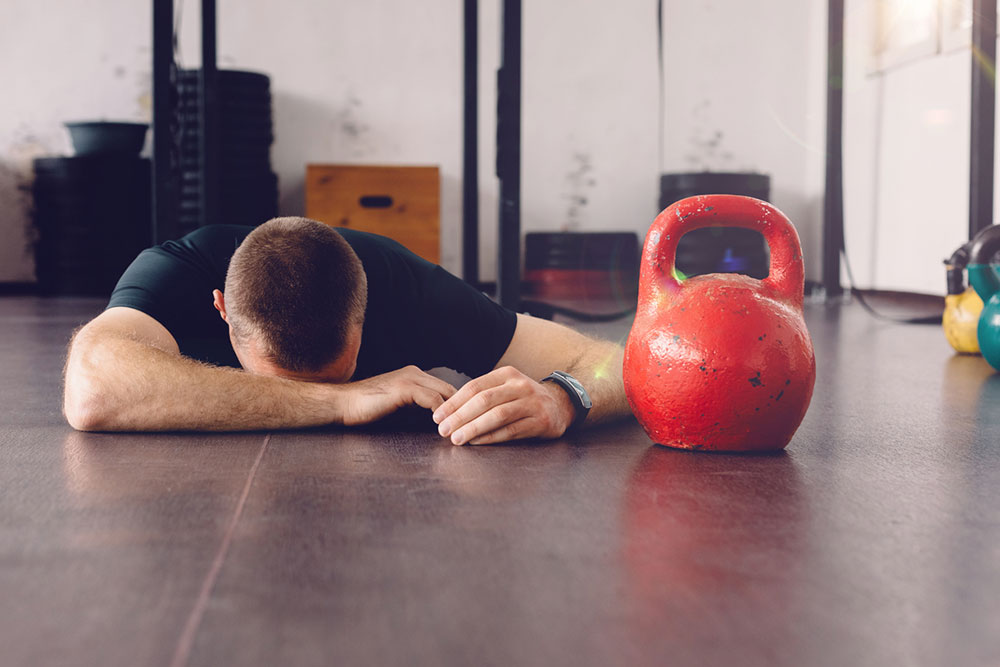














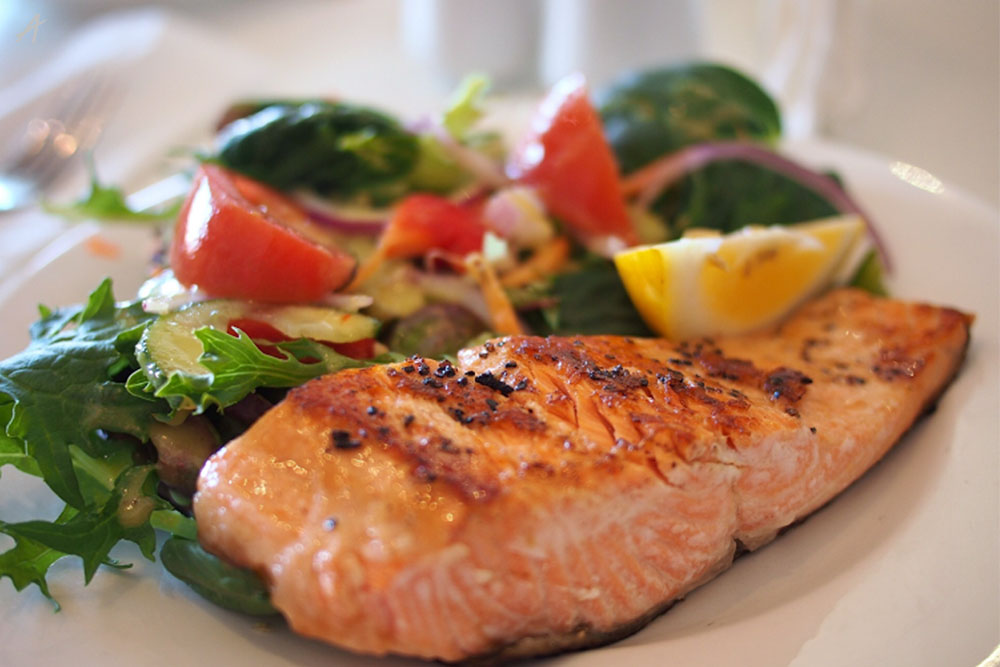


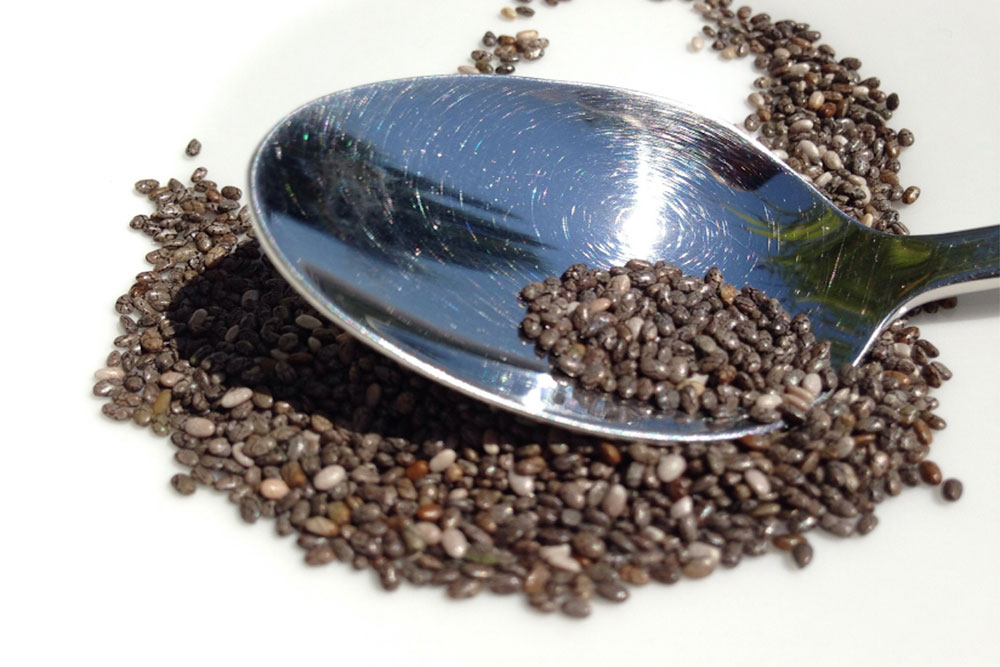

No comments:
Post a Comment